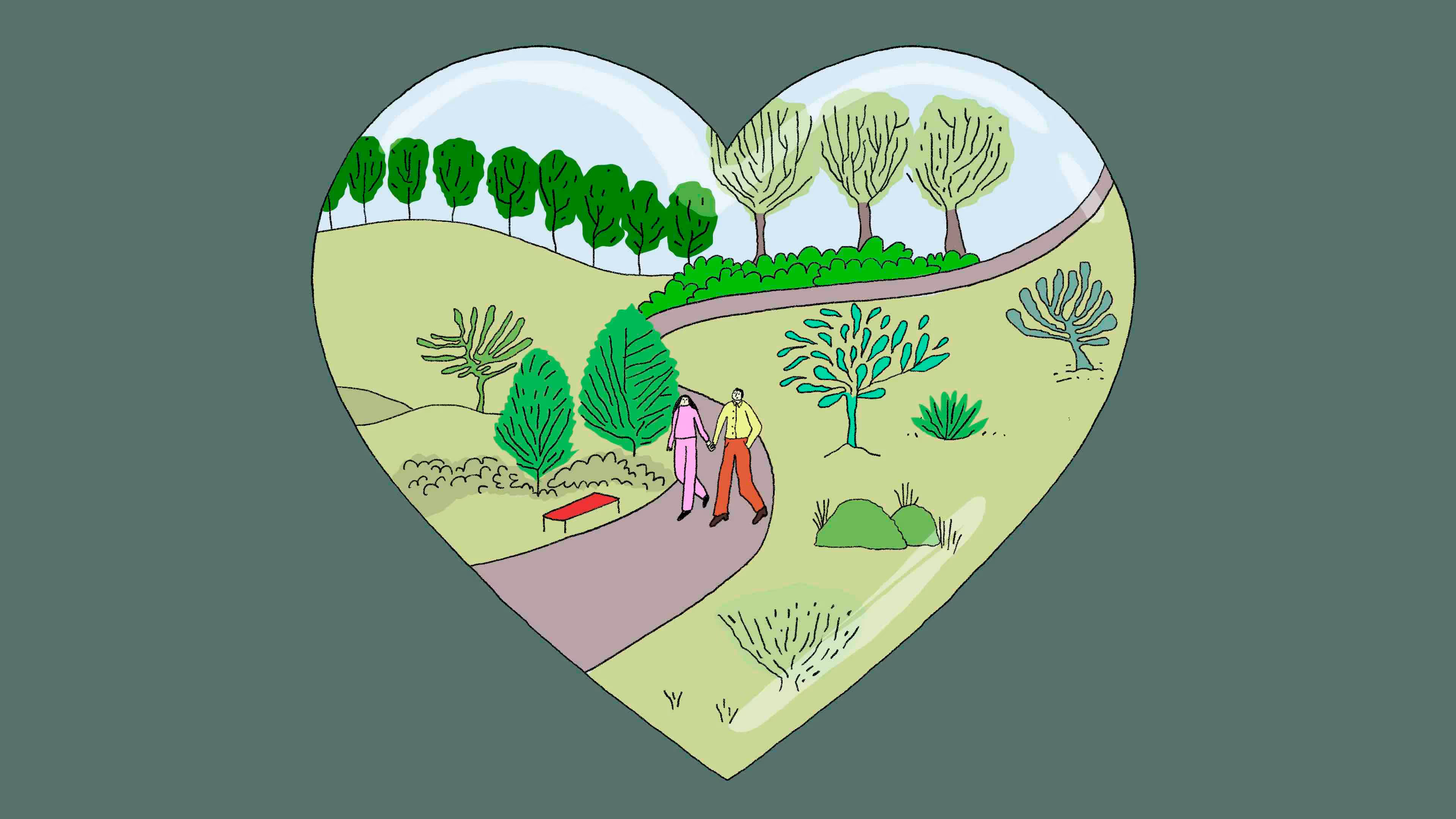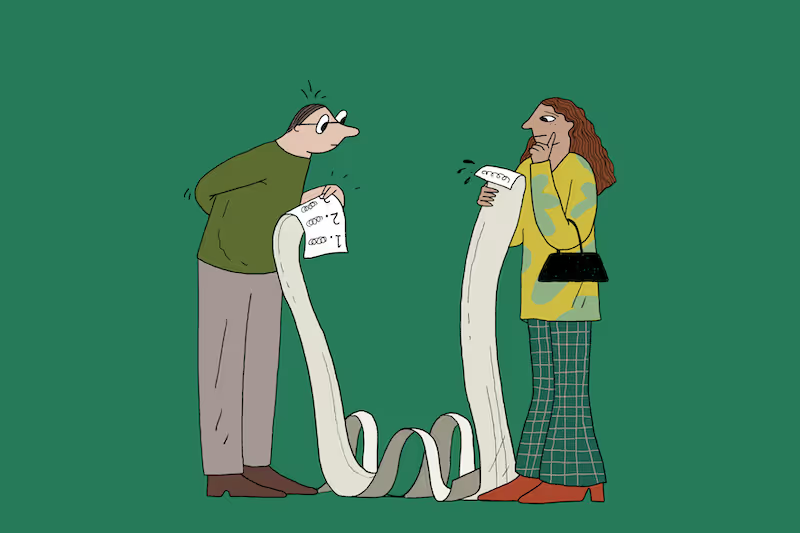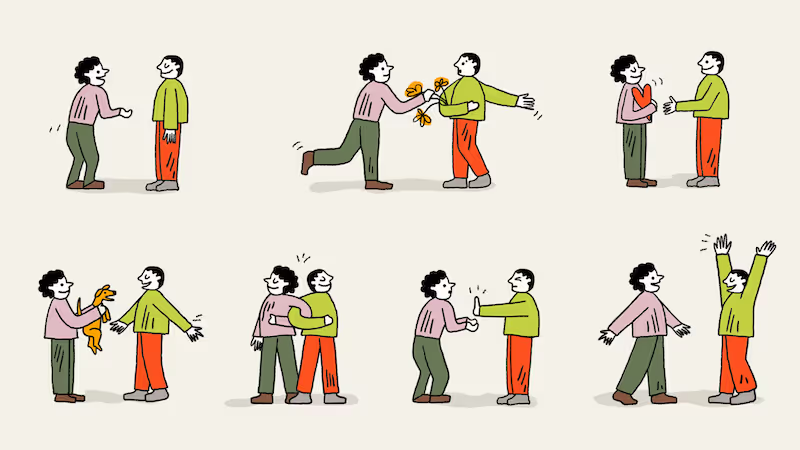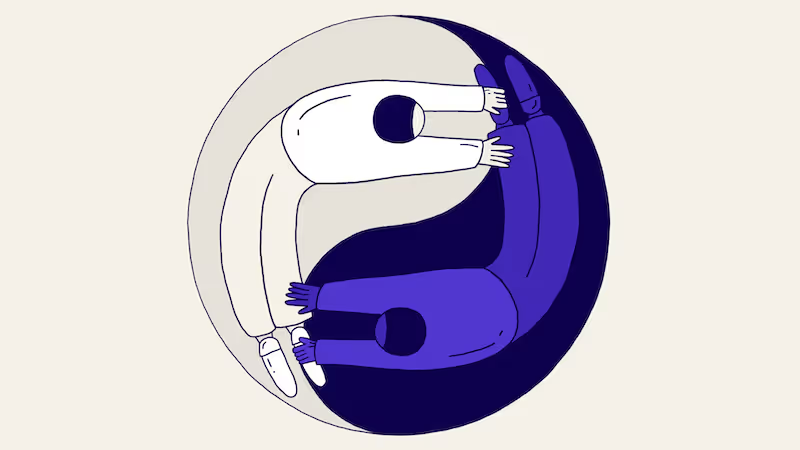Shall We Begin?
“Don’t even think about going out on Valentine’s Day.”
I still remember practically hissing those words at my husband one year at the beginning of February. We were going through a tough period, running our psychotherapy practices, raising two kids, and coordinating care for aging parents across the Atlantic. We also virtually disagreed on how to handle each of these herculean responsibilities.
We weren’t at war, but we were more AT each other than WITH each other. And then suddenly, it was the second week of February and he asked me “what do you want to do for Valentine’s Day?” To me, this wasn’t really a question. What I heard was “I don’t want to do anything for Valentine’s Day. Do you?”
Let’s just say we weren’t feeling romantic. We were so stuck in the trenches, a détente for Valentine’s Day seemed ludicrous. And yet, deep down, it’s all we wanted. In good years, celebrating Valentine’s Day had been a welcome ritual. Now, the holiday felt designed to shame us. Celebrating ourselves felt like a farce and a fraud. It was hard then to see what would eventually come: we’d repair. We’d figure it all out. We’d laugh again. We’d have fun for decades to come.
We worked hard to pull ourselves out of the pit. I can credit my skills as a relationship therapist, but I really have his flirty sense of humor to thank. Nothing thaws icy relations like a masterful diffuser who can finally bring some much needed lightness. When I need a reminder as to why this occasionally frustrating man is the great love of my life, I pull out the “book proposal” he gifted me one year: “Making Your Marriage Work: A Guide for Men with Dynamic, Attractive, Passionate, and Insanely Demanding Wives.”
In reflecting on this, I’m reminded of a quote from my dear friend and colleague, Terry Real, with whom I’ve been spending a lot of time lately. He says “relationships are our biospheres. We’re not above them; we’re in them. You can choose to pollute your biosphere by having a temper tantrum over here, but you’ll breathe in that pollution by your partner’s withdrawal, resentment, or lack of generosity over there. You and they are connected in an ecosystem.”
There is no better advice for those of us warring with a partner. And, believe it or not, Terry’s words apply to Valentine’s Day, too. It’s not just a day in February when card companies and chocolatiers make their annual windfall. Take an ecological approach and a once a year holiday to prove your love becomes a big red reminder to nourish your biosphere. Have I been unkind? Unfair? Downright mean? Holding onto a grudge? What do I need to do for the health of this ecosystem?
Surprise your lover by being more thoughtful than they thought you could be. And then…don’t stop there. Try it again the next day and the day after that. Be kind, more playful. Invite your partner into a new routine, a nightly walk after dinner, lighting a candle while you get ready for bed, coffee together in the morning.
Recently, Terry and I conducted a workshop together. Midway through, we began screaming at each other—all the things couples say to each other during a blow out fight. I’m sure anyone outside the room without context was horrified. But inside the room, one hundred people were laughing at how ridiculous we sounded. We all recognized ourselves in that dialogue, the terrible things we say to the people we love when we’re hurting…and how unproductive it is toward what we really want. We’re all guilty of it.
When you’re so deep in that dynamic, one day in February isn’t going to change anything. But it can be a start, if you let it.
Let’s Turn the Lens on You
- Whether you’re angry, exhausted, or just not feeling it, Valentine’s Day can be stressful.
- The impulse to skip Valentine’s Day altogether is valid. But that can be hurtful to your partner.
- Even doing something small can nourish your relational biosphere.
- Notes go a long way. “I am so grateful for our life together. Thank you today and everyday for your love, care, thoughtfulness, and kindness.”
- Set a goal together. “What is one thing we could do every month this year for the health of our relationship?” Offer your own ideas, too.
- Agree to let go of something. “I’ve been holding on to this grudge/fear/disappointment for too long. I’m ready to let go of this for us.”
- Read a great book or take a class together that will nourish your relationship.
More From Esther
“Looking for the Perfect Fit? Pros & Cons of Relationship Checklists” / a recent article
It’s fantastic to know what you want. It’s important to communicate your desires and values. But there are major downsides to being overly reliant on your relationship checklist. By the time you get to the bottom of it, you may have put yourself in a box and boxed the other person out.
“Our Comfort with Intimacy Has A Lot to do with These 7 Verbs” / an article
It’s been said that we need fifty words in a foreign language in order to speak it. In the language of intimacy, basic fluency comes down to just seven verbs. And behind each one are questions about how we learned to love and be loved.
“The Myth of Unconditional Love in Romantic Relationships” / an article
It might actually be a necessity to allow ourselves to really, really not like the person we love sometimes. Perhaps the highest form of love isn’t unconditional. Maybe it’s closer to Terry Real’s description of self-esteem: our ability to see ourselves as flawed and still hold ourselves in high regard. Can we do that for our relationships, too.
Conversation Starters
A compendium of highly recommended sources of inspiration and information
I’m Reading:
- “Making Great Relationships: Simple Practices for Solving Conflicts, Building Connection, and Fostering Love,” a new book by Rick Hanson, Ph.D.
- “Us: Getting Past You & Me to Build a More Loving Relationship” a book by Terry Real
- “Cloud Atlas” a book by David Mitchell
I’m Listening to:
- Every year, my son Noam Saul makes a playlist for me of timeless music from around the globe. It’s not only a great way to discover new music; it keeps me connected to my son. You may listen to that playlist here.







.svg)





